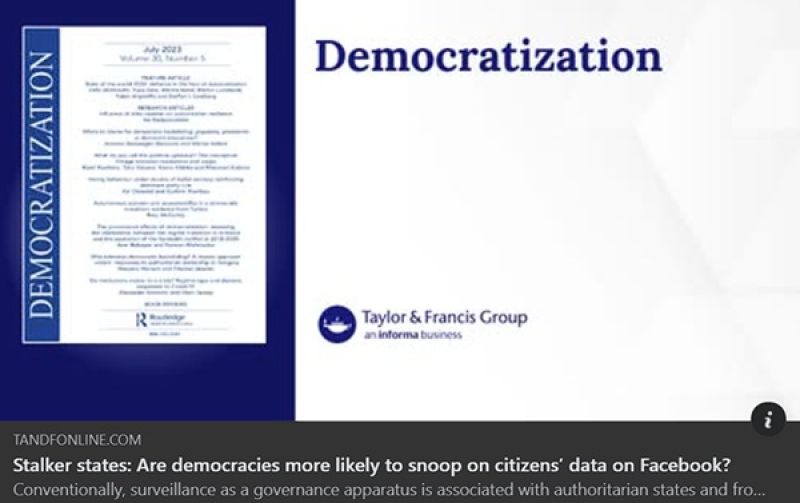State surveillance through Facebook on democratic states

Dr. Rogelio Alicor Panao, convenor of the Program on Social and Political Change (PSPC), has recently published a significant study in the Democratization journal. This research is part of the PSPC’s last year project on Cybersecurity and Democracy in the Philippines.
Contrary to popular belief, Dr. Panao’s study suggests democratic governments may be more inclined to “snoop” on their citizens’ social media data than authoritarian states.
His research, titled “Stalker States: Are democracies more likely to snoop on citizens’ data on Facebook?“ reveals a surprising trend: democracies take the lead in requesting user data from social media giant Facebook. The findings are based on his analysis of government data requests across 176 countries between 2013 and 2023.
These findings challenge the common assumption that state surveillance is primarily a tool of non-democratic regimes. Dr. Panao’s work points to a “democratic surveillance paradox,” where the mechanisms intended to ensure security and accountability within democracies might inadvertently drive increased surveillance, often bypassing standard legal procedures.
The study also underscores that many data requests made by democratic governments, frequently citing national security or emergencies, lack legal warrants. This raises concerns about the potential for governments to use social media platforms to circumvent privacy protections enshrined in law.
As citizens increasingly conduct their lives online, this research calls for greater scrutiny and transparency regarding how governments, particularly democratic ones, access and utilize personal data hosted on social media platforms.